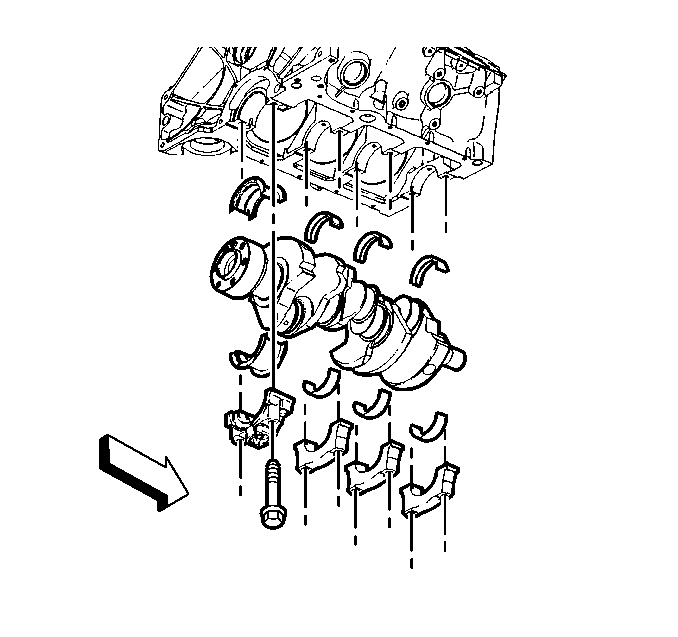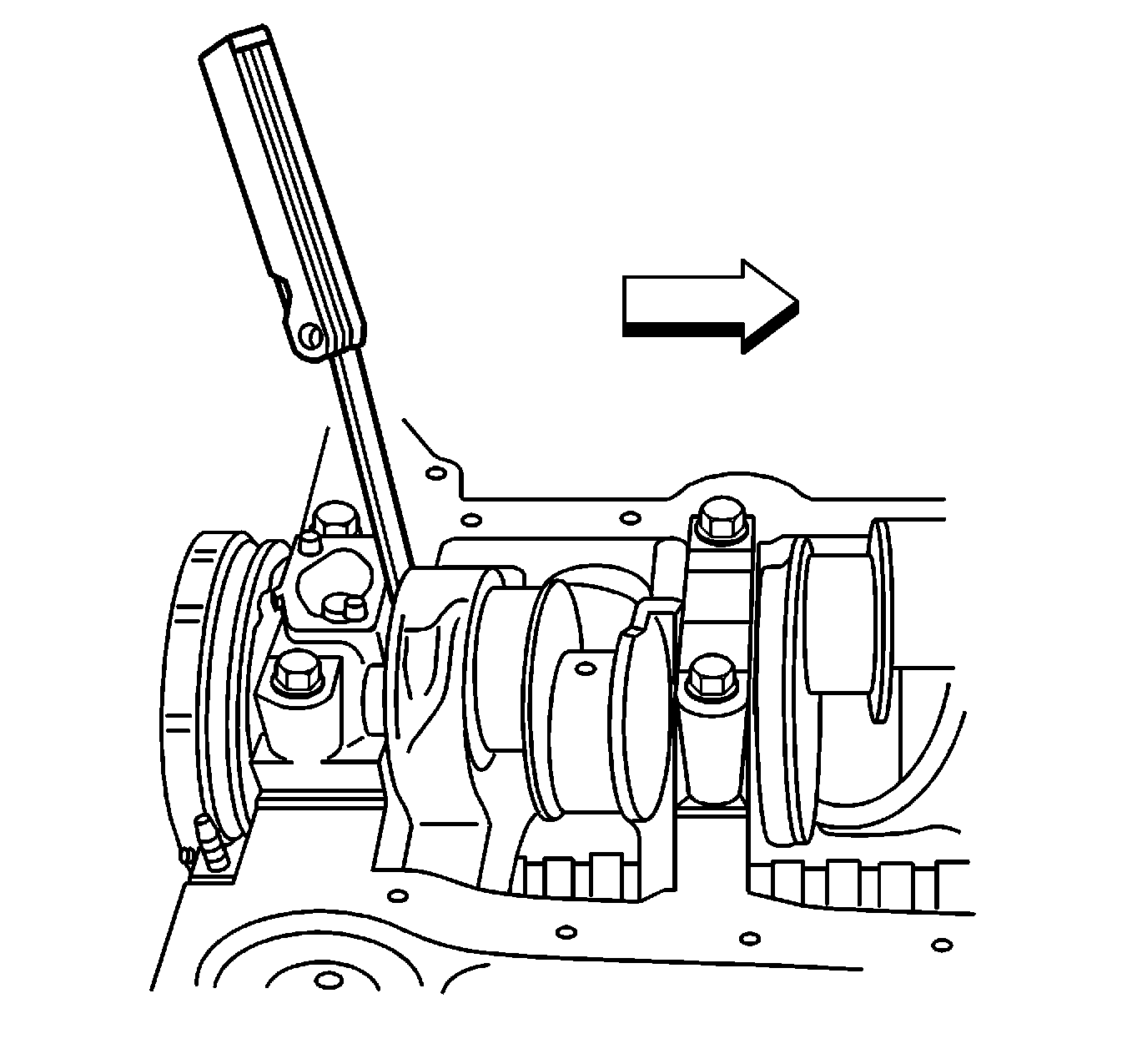Crankshaft and Bearing Installation Bearing Installation
Tools Required
J 36660-A Torque Angle Meter
- Install the crankshaft bearing into the engine block and the crankshaft bearing caps.
- Coat the crankshaft bearings with clean engine oil.
- Install the crankshaft.
- Install the crankshaft bearing caps with crankshaft bearings.
- Be sure that the cap directional arrows point toward the front of the engine block and the cap is in its original position.
- Install the crankshaft bearing cap bolts and studs.
- Thrust the crankshaft reward in order to set and align the thrust bearings and the bearing caps.
- Thrust the crankshaft forward in order to align the rear faces of the rear crankshaft bearings.
- Tighten the bolts on the first pass to 20 N·m (15 lb ft).
- Tighten the bolts on the final pass an additional 73 degrees using the J 36660-A .
- Use a dial indicator or feeler gauge in order to measure end play between the front of the rear of the crankshaft bearing cap and the crankshaft thrust surface in order to determine the crankshaft end play.

Notice: Use the correct fastener in the correct location. Replacement fasteners must be the correct part number for that application. Fasteners requiring replacement or fasteners requiring the use of thread locking compound or sealant are identified in the service procedure. Do not use paints, lubricants, or corrosion inhibitors on fasteners or fastener joint surfaces unless specified. These coatings affect fastener torque and joint clamping force and may damage the fastener. Use the correct tightening sequence and specifications when installing fasteners in order to avoid damage to parts and systems.
Tighten

The proper clearance is 0.05-0.2 mm (0.002-0.008 in).
If you use a feeler gauge, measure between the thrust surface of the crankshaft bearing and the crankshaft.
